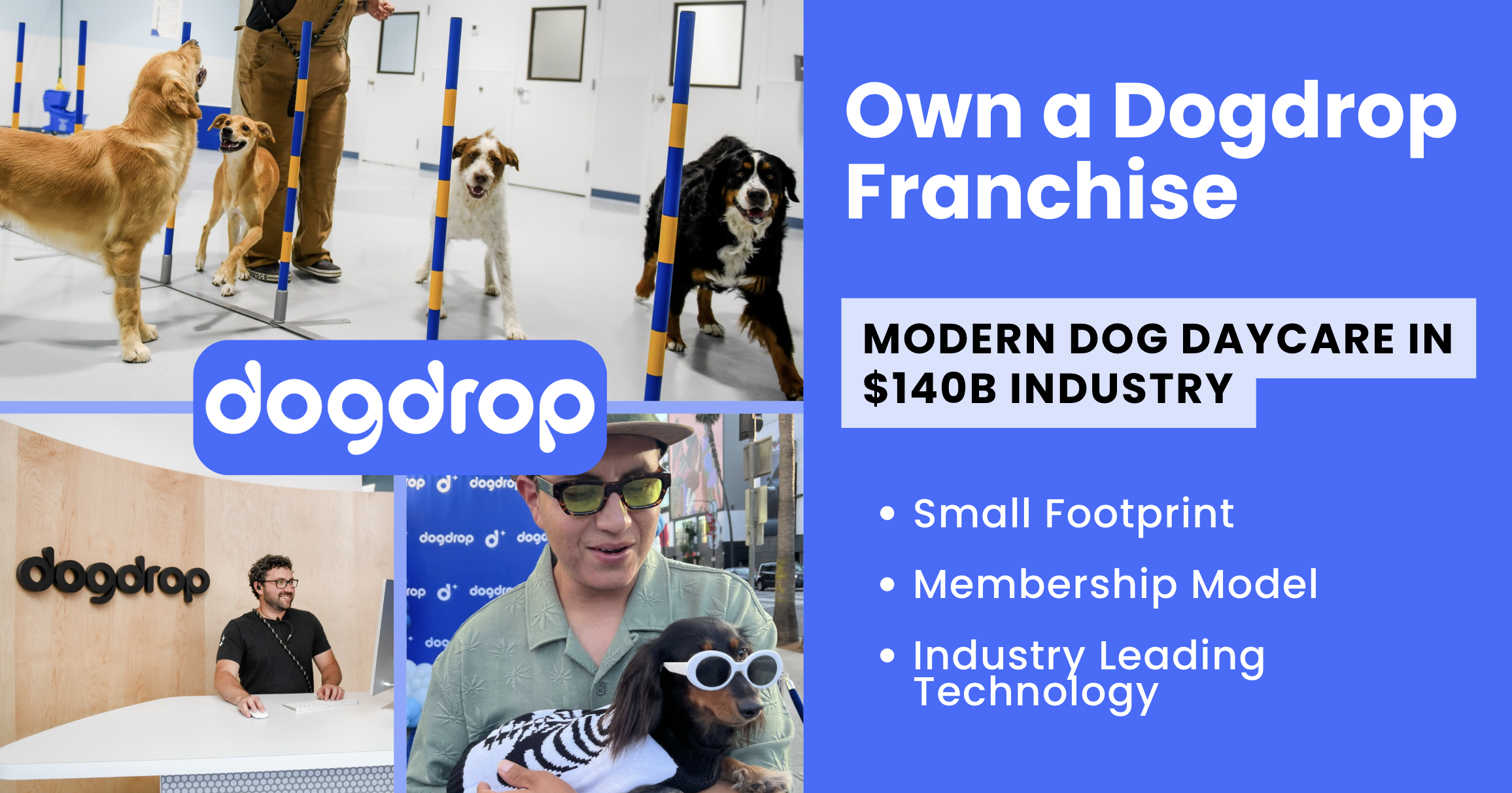3 Pet Service Franchises That Avoid Large Staffing Headaches
3 Pet Service Franchises That Avoid Large Staffing Headaches
In today's challenging labor market, managing a large staff can be one of the biggest obstacles to business success. From rising wages to scheduling complexities, many pet service franchise owners find themselves spending more time managing employees than growing their business.
The Hidden Costs of Large Staff Operations
Financial Impact
Rising minimum wage requirements
Increasing benefits costs
Workers' compensation insurance
Payroll tax obligations
Training expenses
High turnover costs
Management Challenges
Complex scheduling
Ongoing training needs
Performance management
Coverage for call-outs
Staff conflict resolution
Regulatory compliance
Time Investment
Hiring processes
Employee documentation
Training programs
Performance reviews
Schedule management
HR administration
Why Consider Low-Staff Alternatives?
Smart entrepreneurs are increasingly seeking business models that minimize staffing needs while maximizing revenue potential. Here are three innovative pet service franchises that offer exactly that:
1. Cooper's Scoopers (Pet Waste Management)
Streamlined Staffing Model
Solo operation possible
1-3 service technicians for growth
Simple training requirements
Clear service protocols
Why It Works With Minimal Staff
Route-based efficiency
Systematic processes
Technology-driven scheduling
Limited customer interaction time
No facility management needed
Operational Benefits
No complex shift scheduling
Reduced management overhead
Lower insurance costs
Simplified payroll
Easier quality control
2. Dogdrop (Modern Dog Daycare)
Innovative Staffing Approach
Unlike traditional dog daycares requiring 15-20 staff members, Dogdrop's modern model operates efficiently with:
2-4 core team members with up to 6 part time employees depending on volume
Cross-trained personnel
Technology-enhanced supervision
Traditional vs. Dogdrop Staffing
Traditional Daycare Headaches:
Multiple shifts to cover
High turnover rates
Complex break schedules
Constant training needs
Coverage challenges
Dogdrop's Solution:
Efficient space design
Advanced monitoring systems
Streamlined check-in/out
Member-based model
Technology Advantage
Digital check-in systems
Real-time monitoring
Simplified operations
Reduced staff needs
3. Snout Studios - Salon Suites for pet professionals
Franchise Owner-Operator Model or 1 Studio Manager
Owner operator potential
Optional part-time support
Virtual assistance options
Flexible scheduling
The True Cost of Large Staff Management
Financial Perspective
Traditional Pet Business Staffing Costs:
Average employee cost: $35,000-$45,000/year
Benefits: 20-30% of salary
Training: $1,500-$3,000/employee
Turnover cost: Up to 50% of salary
Time Investment Reality
Weekly Hours Spent on Staff Management:
Scheduling: 5-7 hours
Training: 3-5 hours
HR issues: 2-4 hours
Payroll: 2-3 hours
Performance management: 2-4 hours
Regulatory Burden
Labor law compliance
Safety regulations
Insurance requirements
Tax obligations
Employee documentation
Benefits of Low-Staff Models
1. Financial Advantages
Lower overhead costs
Reduced insurance expenses
Minimal HR costs
Simplified payroll
Better profit margins
2. Operational Benefits
Faster decision-making
Consistent service quality
Simplified communication
Quick problem resolution
Efficient adaptation
3. Growth Potential
Faster scaling
Lower expansion costs
Simplified replication
Focused investment
Clear metrics
Choosing the Right Model
Consider Your Strengths
Systems-Oriented (Cooper's Scoopers)
Route management
Process optimization
Quality control
Customer service
Technology-Savvy (Dogdrop)
Digital platforms
Modern operations
Member engagement
Efficient systems
Owner Operator (Snout Studio)
Client relations
Sales & business development
Facilities maintenance
Success Strategies
1. Leverage Technology
Automation tools
Scheduling systems
Customer management
Payment processing
Service tracking
2. Optimize Operations
Streamlined processes
Clear procedures
Quality controls
Efficient routing
Time management
3. Focus on Growth
Market expansion
Service addition
Territory development
Customer retention
Brand building
Making the Transition
For those currently managing large teams, these models offer an attractive alternative:
Transition Benefits
Reduced stress
Better work-life balance
Focused growth
Simplified operations
Higher profit potential
Implementation Steps
Evaluate current challenges
Research low-staff models
Compare opportunities
Plan transition
Execute changeover
Next Steps
Ready to escape staffing headaches?
Research Phase
Review franchise options
Analyze requirements
Compare models
Check territories
Evaluation Process
Financial review
Market analysis
Skills assessment
Growth planning
Decision Making
Model selection
Territory choice
Timeline development
Launch preparation
Reach out to each of the above providers to schedule a consultation to learn how you can build a successful pet service business without the headaches of managing a large staff.
Note: While these models minimize staffing needs, success still requires dedication, proper systems, and excellent customer service. Each business model should be carefully evaluated based on your specific goals and market conditions.




